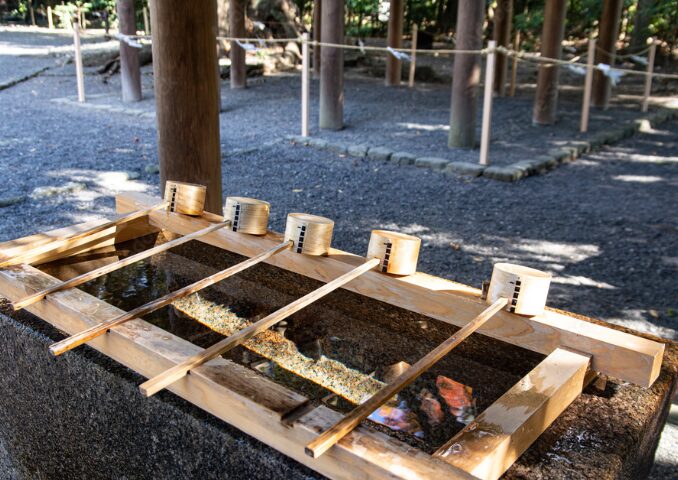Japan is renowned for its rich cultural heritage and unique social customs that many visitors find fascinating yet intricate. Understanding Japanese etiquette is key to enjoying a respectful and smooth experience while visiting or living in this remarkable country. The foreigners I know who embrace these customs are not just knowledgeable but also admired for their outstanding personalities. Learning manners and cultural etiquette will help you avoid misunderstandings and ensure a positive impression, preventing situations where Japanese people might consider your behavior unpleasant or disrespectful.
- Respect and Politeness: The Foundation of Japanese Social Manners
- Public Behavior: Quiet, Clean, and Orderly
- Dining Etiquette: From Chopsticks to Slurping Noodles
- Visiting Homes and Social Interactions
- Navigating Public Transportation and Public Spaces
- Conclusion: Embracing the Spirit of Japanese Etiquette
Respect and Politeness: The Foundation of Japanese Social Manners
At the heart of Japanese etiquette lies a deep sense of respect and politeness. In Japan, social harmony is highly valued, often taking precedence over individual preferences. This means being considerate of others’ feelings, rights, and convenience is not just expected—it is essential. Simple actions, such as bowing instead of shaking hands, demonstrate respect. Though visitors are not expected to master all levels of bowing, a polite nod or slight bow when greeting or thanking someone is appreciated.
Punctuality is another cornerstone of Japanese culture. Arriving on time, or better yet, a bit early, for appointments, meetings, or social gatherings shows that you value others’ time, reinforcing mutual respect.
Public Behavior: Quiet, Clean, and Orderly
Maintaining a low volume in public places is a subtle but important etiquette. Speaking loudly or talking on the phone while on trains or buses is generally frowned upon. Instead, enjoy the quiet atmosphere that many Japanese people treasure as it respects the comfort of everyone.
Japanese streets and public areas are impeccably clean, despite often having very few public garbage bins. This is because people carry their trash home or dispose of it at designated places such as train stations or convenience stores. Littering is strongly discouraged and can lead to disapproving glances.
Another significant social rule is orderly queuing. Whether waiting for a train, bus, or store entrance, the Japanese naturally form neat lines and expect others to do the same. Following this norm helps maintain fairness and smooth flow.
Dining Etiquette: From Chopsticks to Slurping Noodles
When dining, there are numerous etiquette nuances to keep in mind. In Japan, using chopsticks correctly is considered respectful. Avoid actions such as sticking chopsticks upright into rice, which resembles a funeral ritual, or passing food directly from chopstick to chopstick, which is associated with a funeral custom as well.
Tip-giving is not practiced in Japan; good service is seen as a standard, and attempting to tip may cause confusion or offence. The best way to show appreciation is simply to express your gratitude sincerely.
Contrary to etiquette in many Western cultures, slurping noodles like ramen or soba is a compliment to the chef and indicates enjoyment of the food. At the same time, it is polite to avoid loud chewing noises outside of soup noodles.
Visiting Homes and Social Interactions
When entering a Japanese home or certain traditional establishments, always remove your shoes at the entrance (genkan). Houses usually provide slippers for indoor use, and sometimes separate toilet slippers. Wearing shoes inside is considered highly disrespectful.
Gift-giving when visiting someone’s home is another customary practice. Presenting a small, nicely wrapped gift such as sweets or a beverage shows your appreciation for the host’s hospitality.
Social interactions in Japan also value humility and indirect communication. Boasting is uncommon, and people often express disagreement subtly, avoiding conflict. Apologizing promptly and sincerely when mistakes are made goes a long way in maintaining good relationships.
Navigating Public Transportation and Public Spaces
In crowded public transportation, place backpacks on the floor rather than on your back to avoid inconveniencing others. Follow marked lines on train platforms and queue correctly to ensure safety and order.
Overall, avoiding behaviors that might bother others—including public displays of affection, loud conversations, or eating while walking—demonstrates cultural sensitivity and earns the respect of Japanese people.
Conclusion: Embracing the Spirit of Japanese Etiquette
Adapting to Japanese etiquette takes effort but enriches the travel or living experience immensely. The foreigners who study and respect these customs stand out as graceful and considerate individuals. Learning these manners prevents cultural misunderstandings, and helps build warm, respectful relationships in Japan. With these insights, visitors can enjoy Japan not only as tourists but as culturally mindful guests.
Mastering Japanese etiquette opens doors to deeper cultural understanding and lasting connections. So embrace the practice of politeness, keep public spaces clean, honor your hosts with respectful behavior, and enjoy the unique customs Japan offers.



コメント